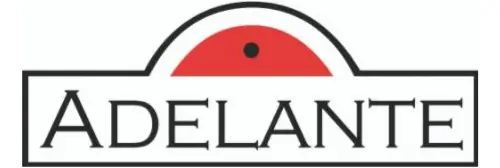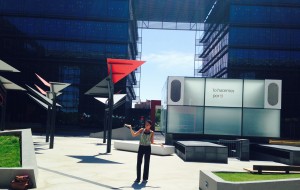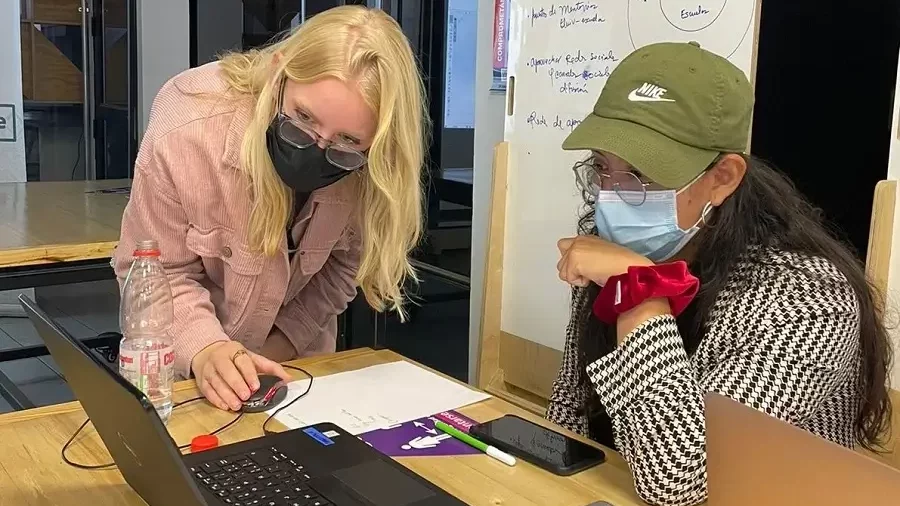The following describes the unique situation of former intern, Jennifer J. It is a good example of how processes may differ in other countries and how one must adapt to such situations (especially when these processes deviate from the norm an individual may be used to).
The NIE (Foreign Identification Number, Número de Identificación de Extranjero) Process
My internship experience with Adelante and Accenture has been great so far. Although, there were a few things that were challenging in the beginning with the process I believe that they helped me learn more about the Spanish culture and how business is conducted in this country.
I first learned that I would need a ¨NIE¨ document and a Seguridad de Social number on the Thursday before I had planned on starting my internship. I found this to be odd because I had been talking with my assigned company, Accenture, since about a month before I even arrived in Madrid. Accenture was a new company working with Adelante and their entire selection process had been a little bit different for me. I was extremely excited to be working with them because it is the same company that I will be working for in the US in the fall.
In June I had gone through a phone interview, in English, with one of the individuals in HR. It was a challenging task to figure out how I was going to accept an international call on my cell phone in the US, but I ended up using google voice and an international monthly plan Verizon was offering. The interview was a pretty standard STAR based question interview, however the challenging part was trying to understand the accent of the woman who was interviewing me. Although, she was speaking English her accent really made it hard to understand her questions. Also, she did not understand the format of my resume and she asked 3 times about when had I graduated and how many degrees had I earned in the states. She also seemed surprised that I have had 5 internships before I graduated with my MBA. I had to explain to her how the summer is usually when students in the US do a 8-10 week internship to practice skills in a workplace environment.
After that initial interview I was contacted many times by individuals in the company. A few days later someone called me back to briefly discuss what type of assignment I would be working on while in Spain. Another time someone emailed me just saying to contact them as soon as I arrived in Madrid. It was all very exciting to me, especially when I started to receive emails in Spanish. It made the whole experience seem much more real.
When I arrived in Spain I had 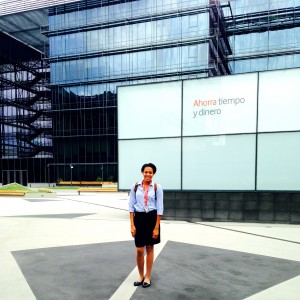 several more interactions with HR and my manager before actually showing up for the first day. Almost everyday someone wanted to tell me something about the assignment or ask me questions. One of the first calls they asked if I could work form 9-6 each day. I told her that it was prohibited by my program and that I could only work up to 20 hours. This was easily corrected after speaking with Kimberly. Antonio seemed to be offended that I did not want to work 40+ hours a week and told me it would be better for me to learn. After getting the situation corrected with Kimberly everything was back on track and I actually got approved to work Mon-Thursday from 9-2 which was a perfect schedule for me!
several more interactions with HR and my manager before actually showing up for the first day. Almost everyday someone wanted to tell me something about the assignment or ask me questions. One of the first calls they asked if I could work form 9-6 each day. I told her that it was prohibited by my program and that I could only work up to 20 hours. This was easily corrected after speaking with Kimberly. Antonio seemed to be offended that I did not want to work 40+ hours a week and told me it would be better for me to learn. After getting the situation corrected with Kimberly everything was back on track and I actually got approved to work Mon-Thursday from 9-2 which was a perfect schedule for me!
At this point I had been engaging in all contact in Spanish. Emails were easy to navigate because I could re-read them if needed or look a word up if I did not know it. Conversation was a different story because initially everyone spoke to me very fast and I was not able to understand them. I could understand the general gist of what someone was saying to me and I could answer in very short simple sentences.
All of this had taken place in the course of the two weeks I was studying at Eureka for language practice. Once I finally had my assignment at the client site, and knew who my manager would be I was ready to begin work on Monday, or so I thought. On that Thursday I was informed by HR that I needed a NIE and a Social Security number to begin work. No one had ever mentioned this to me in the past month of being in contact with the company so it came as a surprise to both me and Kimberly. After a lot of confusion and discussion among Kimberly, Antonio, and the HR department at Accenture I finally knew what I had to do. Instead of starting on the Monday after ending my classes I was to go to one of the Spanish government buildings to obtain my NIE.

A NIE is:
“NIE number (Foreign Identification Number, Número de Identificación de Extranjero) is a necessity in all fiscal or legal matters in Spain. Most commonly for foreigners this means when you purchase your property and sign for your mortgage in Spain.”
Because I would not be buying any property or doing any legal matters here I was confused as to why I needed a NIE, but either way I was more than willing to accommodate the company because I was so excited to start work. The entire process was very interesting. Thankfully, Kimberly had emailed me step by step directions on what I needed to do to get the document because otherwise I would have been lost.
First, I had to make sure I arrived at the office building at least 30-15 minutes earlier that the building opened to make sure I would be able to secure a spot in line. Then once inside the building I was told that instead of the copy of my passport that obtained the information from the first two pages with all of my identification information, I needed a copy of every single page in the book. I found this odd because majority of those pages are blank and it seemed a bit pointless, but I complied. I had to find a papelería to make more copies. Then, once that was completed I had to go to the bank to pay 11 euro for the number and return to the building a third time to finally get a number in line. After waiting in line for about an hour and a half my number was finally called.
The woman who serviced me seemed to have no sense of urgency when processing my paperwork and took many breaks to check her phone. She also had to ask her co-workers how to process my paperwork. Once everything was finally complete they were able to issue me this paper which contained my NIE number. Next up was getting my Social Security number, but Spanish government buildings for the most part are only open from 9-12 so I had to wait until the next day to go get that information.
Obtaining my Spanish Seguridad de Social was actually much easier than obtaining a NIE. I found this interesting because in the US its next to impossible to just be issued a SSN, but clearly it is different here. All I had to do was find my closet social security office to my apartment. The company sent me a link to the website with all of the locations and I just chose the one with the same zip code. After arriving at the building I had to wait in line similar to the way I waited in line to obtain my NIE, but this time it was a much shorter wait. I had to bring them a copy of my NIE document, they entered a few standard pieces of personal information in the computer and within 15 minutes I was done.
The entire process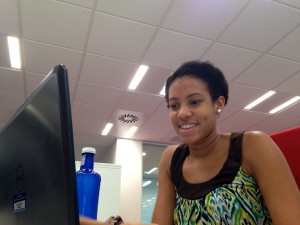 was a learning experience. I observed that Spanish culture is very relaxed. They historically have taken siestas during the day, eat dinner really late, and stay up and party all night. It is a very different culture from the fast pace and busy US. Sometimes I find it refreshing to not always be in a rush to get something done or move on to the next event. Other times, it´s annoying when you have a deadline to meet or something time sensitive to do and nobody shares your same sense of urgency for the matter. This can be very inefficient at times and I can see how this attitude could prevent their country from keeping up with the rest of the world economically, especially since everyone in Spain keeps referring to how hard it is to get a job here and how the crisis is affecting everyone.
was a learning experience. I observed that Spanish culture is very relaxed. They historically have taken siestas during the day, eat dinner really late, and stay up and party all night. It is a very different culture from the fast pace and busy US. Sometimes I find it refreshing to not always be in a rush to get something done or move on to the next event. Other times, it´s annoying when you have a deadline to meet or something time sensitive to do and nobody shares your same sense of urgency for the matter. This can be very inefficient at times and I can see how this attitude could prevent their country from keeping up with the rest of the world economically, especially since everyone in Spain keeps referring to how hard it is to get a job here and how the crisis is affecting everyone.
For the future I would suggest that anyone planning to intern with Accenture in Spain take a day or two before starting the internship to get this important paperwork done. Although it may be a tedious task I think it really allows you to observe some of the business practices of the Spaniards.
– Jennifer J., August 2014
